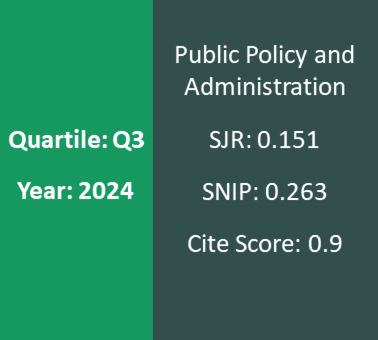Subjective Quality of Life as Social Indicator: the Context of Public Sector
Abstract
This paper aims to disclose the concept of social indicators and its meaning for modern public administration
practice and appropriate scientific research. The necessity to create a national system of social indicators in
Lithuania is emphasized. Methodological problems of legitimating the thematic (dimensional) structure of social
indicators is discussed as well. The article indicates a coherence of social indicators with fundamental methodological
problems of society cognition: social measurement and evaluation, social diagnostics and social
prognosis. The authors state a coherence of social indicators with social welfare, quality of life, sustainable
development and New Public Management concepts. Paper is based on assumption, that the New Public Management
is an instrument to assure sustainable development: it has to create prerequisites for quality of life. The
problem of quality of life indicators is analysed, assuming a necessity to combine both objective and subjective
indicators of quality of life in a particular research. It is indicated, that subjective indicators are a source of
scientific informatikon, while subjective quality of life indicators are an independent object of social cognition.
The paper presents a methodology for research of public opinion in a particular municipality, based on subjective
quality of life indicators.





